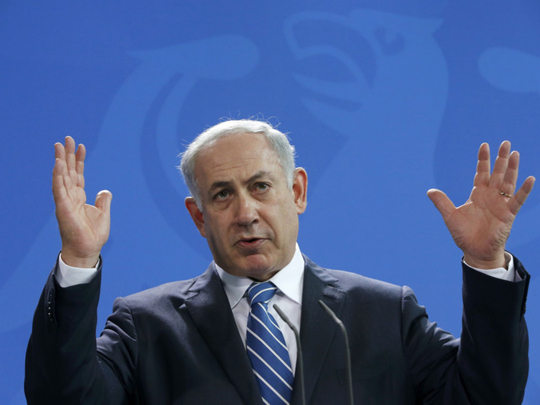
Israel is facing one of the most daring challenges to its decades-old occupation of Palestinian territories and its continued violation of international law. The Boycott, Divestment and Sanctions (BDS) Movement has become a grass-roots global effort to punish Israel economically and politically. Its aim is to end Israel’s illegal occupation and colonisation of Palestinian land, ensure full equality for Arab-Palestinian citizens of Israel and respect the right of return of Palestinian refugees. This is what more than 20 years of negotiations has failed to achieve. The real power behind BDS is the colossal popular support that is coming from outside the normal political circles.
Launched in 2005 by the Palestinian BDS National Committee, a coalition of more than 100 Palestinian non-governmental organisations, the campaign cites countless United Nations Security Council and General Assembly resolutions on the Palestinian cause and essentially calls for “various forms of boycott against Israel until it meets its obligations under international law”. It has been inspired by the successful boycott of South Africa’s apartheid rule, which finally led to the collapse of the white minority regime there. It is the kind of soft power that Israel cannot overcome through classical tools of lobbying, media manipulation and sheer oppression of Palestinians.
Since its launch, the BDS movement has gathered incredible momentum leading to growing popular support in many countries including academics, trade unions, political parties, human rights activists and even Israeli citizens. As the political process to find a settlement between Israel and the Palestinians faltered, the BDS Movement became more relevant to the extent that Israel now considers this as a serious and present threat. No wonder that the Israeli government has pressured its western allies to pass anti-BDS legislation. The British government is about to introduce such a law, amid growing public objections, while the Canadian parliament has already passed an anti-BDS bill this month. It was interesting to note that within a few hours of its passing in Canada’s House of Commons, the law which condemns BDS and even individuals who promote it — the Students Society at McGill, a leading university in Montreal, voted to support BDS. In Britain, activists have accused the government of a crackdown on human rights campaigners over plans to ban city councils, public bodies and some student unions from boycotting “unethical” businesses, including those operating in illegal Israeli colonies in the occupied West Bank, Al Jazeera reported.
And in the United States, Israeli daily Haaretz reported that almost half of the state legislatures were considering passing bills aimed at countering attempts to boycott Israel. Some states are considering defunding universities that support an Israeli boycott. Already this has raised concern that these bills seek to legitimise Israeli colonies or that they go so far as to punish boycott supporters and infringe on constitutionally protected speech. More importantly, these bills could reverse nearly 50 years of US policy of not recognising the legitimacy of Israeli colonies.
Last Wednesday, US President Barack Obama said he had signed the Trade Facilitation and Trade Enforcement Act of 2015 and embraced its provisions protecting Israel from BDS. But Obama also said he would not observe the measure’s requirement to extend those protections to businesses in “Israeli-controlled territories”. So the controversy over BDS in Washington and other capitals continues.
Last year, Israel reacted angrily when the European Commission introduced new labelling guidelines for products produced in illegal Israeli colonies in the Occupied Palestinian Territories. The measures require that producers must explicitly label products that come from colonies built on land occupied by Israel if they are sold in the European Union (EU). More explicitly, the EU said the measures are “in line with international law, [which] does not recognise Israel’s sovereignty over the territories occupied by Israel since June 1967, namely the Golan Heights, the Gaza Strip and the West Bank, including occupied East Jerusalem, and does not consider them to be part of Israel’s territory, irrespective of their legal status under domestic Israeli law”. A number of Israeli officials and legislators described these measures as “anti-Semitic” and vowed to oppose them. The economic cost for Israel as a result of this will be huge considering that the EU is Israel’s largest trading partner, amounting to approximately $32 billion (Dh117.52 billion) in 2014. The government of Israeli Prime Minister Benjamin Netanyahu has reportedly committed $26 million to fight the BDS movement on numerous fronts. The campaign targets academic institutions and legislative bodies at the national, state and local levels. This is in addition to the anti-BDS efforts applied by pro-Israel lobbies in Canada, the US and Europe.
As it enters its 11th year, the BDS movement is showing no sign of relenting. It has become a global campaign that gets its support from millions of morally driven private citizens, academics, unionists, celebrities and others. At a time when Israel is blocking any peaceful settlement to end its occupation, there is growing sympathy for the just cause of the Palestinian people. The real strength of the BDS Movement lies in the fact that it is not driven by government or official bodies, but by millions of conscientious people all over the world. It now has a momentum of its own. By seeking to outlaw the BDS, governments and local assemblies are only triggering further debate about the constitutional rights of people to free expression and right to choose.
Israel’s anti-BDS campaign will certainly fail. Furthermore, it will backfire, bringing the Palestinian issue to the forefront as citizens, academics and others part ways with political establishments that shamefully provide cover for Israel’s crimes and brazen violation of international law. This is why as the UN, western governments and authorities fail in their duty to end the injustice that Palestinians continue to suffer, the BDS Movement matters. This is one battle Israel is doomed to lose.
Osama Al Sharif is a journalist and political commentator based in Amman.










